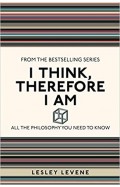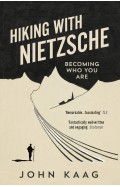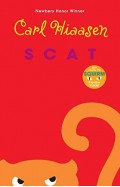Civilisations: How Do We Look / The Eye of Faith
By: Mary Beard
-
Rs 3,565.75
- Rs 4,195.00
- 15%
You save Rs 629.25.
Due to constant currency fluctuation, prices are subject to change with or without notice.
The idea of 'civilisation' has always been debated, even fought over. At the heart of those debates lies the big question of how people - from prehistory to the present day - have depicted themselves and others, both human and divine. Distinguished historian Mary Beard explores how art has shaped, and been shaped by, the people who created it. How have we looked at these images? Why have they sometimes been so contentious?
In Part One, she examines how the human figure was portrayed in some of the earliest art in the world - from the gigantic stone heads carved by the Olmec of Central America to the statues and pottery of the ancient Greeks to the terracotta army of the first emperor of China. And she explains how one particular version of representing the human body, which goes back to the ancient world, still influences (and sometimes distorts) how people in the West see their own culture and that of others. Throughout this story, she is concerned not only with the artists who made images, but with those who have used them, viewed them and interpreted them. In other words: How Do We Look?
In Part Two, Mary Beard turns to the relationship between art and religion. For centuries, religion has inspired art: from the Hindu temple at Angkor Wat to the Christian mosaics of Ravenna to the exquisite calligraphy of Islamic mosques. But making the divine visible in the human world has never been simple. All religions have wrestled with idolatry and iconoclasm, destroying art as well as creating it - and asking how to look with The Eye of Faith.
The idea of 'civilisation' has always been debated, even fought over. At the heart of those debates lies the big question of how people - from prehistory to the present day - have depicted themselves and others, both human and divine. Distinguished historian Mary Beard explores how art has shaped, and been shaped by, the people who created it. How have we looked at these images? Why have they sometimes been so contentious?
In Part One, she examines how the human figure was portrayed in some of the earliest art in the world - from the gigantic stone heads carved by the Olmec of Central America to the statues and pottery of the ancient Greeks to the terracotta army of the first emperor of China. And she explains how one particular version of representing the human body, which goes back to the ancient world, still influences (and sometimes distorts) how people in the West see their own culture and that of others. Throughout this story, she is concerned not only with the artists who made images, but with those who have used them, viewed them and interpreted them. In other words: How Do We Look?
In Part Two, Mary Beard turns to the relationship between art and religion. For centuries, religion has inspired art: from the Hindu temple at Angkor Wat to the Christian mosaics of Ravenna to the exquisite calligraphy of Islamic mosques. But making the divine visible in the human world has never been simple. All religions have wrestled with idolatry and iconoclasm, destroying art as well as creating it - and asking how to look with The Eye of Faith.
Confronting the Classics - Traditions, Adventures and Innovations
By: Mary Beard
Rs 2,290.75 Rs 2,695.00 Ex Tax :Rs 2,290.75
Civilisations: How Do We Look / The Eye of Faith
By: Mary Beard
Rs 3,565.75 Rs 4,195.00 Ex Tax :Rs 3,565.75
Emperor of Rome - Ruling the Ancient Roman World
By: Mary Beard
Rs 8,095.50 Rs 8,995.00 Ex Tax :Rs 8,095.50
Zubin Mehta: A Musical Journey (An Authorized Biography)
By: VOID - Bakhtiar K. Dadabhoy
Rs 892.50 Rs 1,050.00 Ex Tax :Rs 892.50
The Origins of Political Order From Prehuman Times to the French RevolutioN
By: Francis Fukuyama
Rs 4,045.50 Rs 4,495.00 Ex Tax :Rs 4,045.50
Manning Up: How the Rise of Women Has Turned Men into Boys
By: Kay Hymowitz
Rs 845.75 Rs 995.00 Ex Tax :Rs 845.75
The Obama Syndrome: Surrender At Home War Abroad
By: Tariq Ali
Rs 1,100.75 Rs 1,295.00 Ex Tax :Rs 1,100.75
The Quest For Meaning: Developing A Philosophy Of Pluralism
By: Tariq Ramadan
Rs 1,185.75 Rs 1,395.00 Ex Tax :Rs 1,185.75
The Pakistan US Conundrum Jihadists The Military And The People The Struggle For Control
By: Yunas Samad
Rs 1,185.75 Rs 1,395.00 Ex Tax :Rs 1,185.75
An Enemy We Created: The Myth Of The Taliban Al Qaeda Merger In Afghanistan 19702010
By: Alex Strick van Linschoten
Rs 4,197.50 Rs 8,395.00 Ex Tax :Rs 4,197.50
WikiLeaks: Inside Julian Assanges War on Secrecy
By: David Leigh & Luke Harding
Rs 637.50 Rs 850.00 Ex Tax :Rs 637.50
No similar books from this author available at the moment.
I Think, Therefore I Am: All the Philosophy You Need to Know - Paperback
By: Lesley Levene
Rs 647.50 Rs 1,295.00 Ex Tax :Rs 647.50
Hiking with Nietzsche: Becoming Who You Are
By: John Kaag
Rs 2,965.50 Rs 3,295.00 Ex Tax :Rs 2,965.50
Zubin Mehta: A Musical Journey (An Authorized Biography)
By: VOID - Bakhtiar K. Dadabhoy
Rs 892.50 Rs 1,050.00 Ex Tax :Rs 892.50
Confronting the Classics - Traditions, Adventures and Innovations
By: Mary Beard
Rs 2,290.75 Rs 2,695.00 Ex Tax :Rs 2,290.75
Civilisations: How Do We Look / The Eye of Faith
By: Mary Beard
Rs 3,565.75 Rs 4,195.00 Ex Tax :Rs 3,565.75
Emperor of Rome - Ruling the Ancient Roman World
By: Mary Beard
Rs 8,095.50 Rs 8,995.00 Ex Tax :Rs 8,095.50












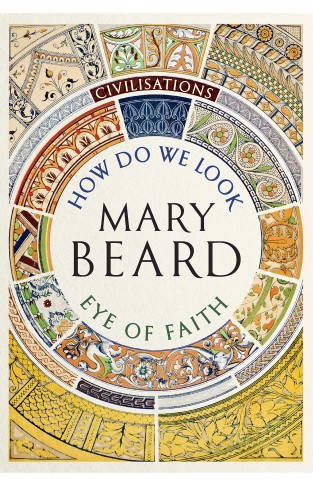
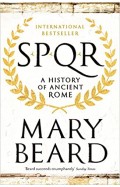
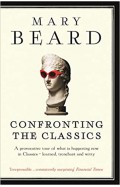
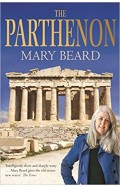
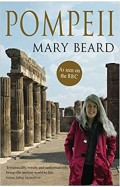
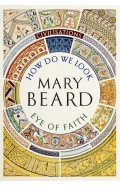
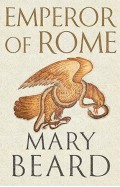
-120x187.jpg?q6)





-120x187.jpg?q6)



-120x187.jpg?q6)





